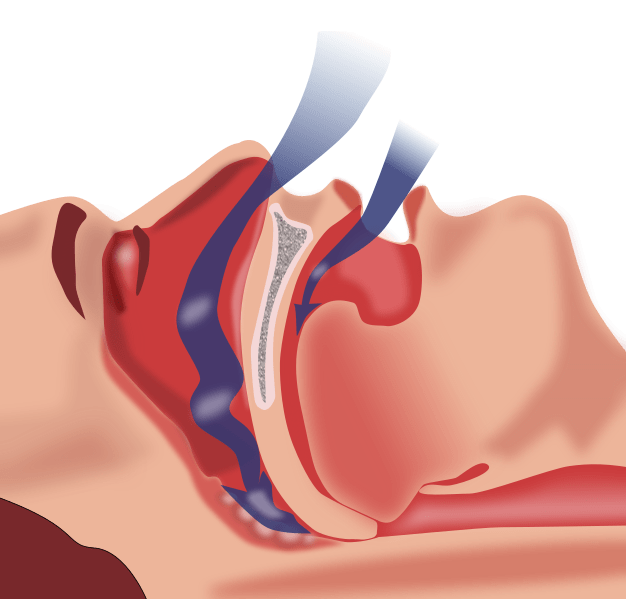Sleep apnea is a condition in which your breathing pauses repeatedly while you sleep. When sleep apnea occurs, your body wakes you up to resume breathing. It can lead to multiple sleep interruptions that will prevent you from sleeping well, making you feel tired throughout the day. But aside from making you feel tired and sleepy, sleep apnea has more negative effects on your health, especially when it is left untreated. Today, we are going to share with you how sleep apnea can affect your health.
Signs of Sleep Apnea
Before we go to the effects of sleep apnea to your health, let us understand first the signs for you to know if you might be suffering from it. Sleep apnea has two kinds which are the obstructive sleep apnea and the central sleep apnea. Obstructive sleep apnea is when the air can’t flow into or out of the nose and mouth even though you are trying to breathe. Central sleep apnea, on the other hand, happens when the brain fails to send the right signals to your muscles for you to start breathing. Central sleep apnea is less common compared to obstructive sleep apnea.
People with sleep apnea might suffer from unexplained fatigue and mood swings because of the multiple sleep interruptions that happened through the night. Some might wake up with a dry mouth and headache as well.
Effects of Sleep Apnea to Your Body
There are many health conditions that are linked to sleep apnea such as obesity and high blood pressure. And these conditions, when coupled with the lack of sleep, can harm different systems in our body. Here are how sleep apnea can affect your health when it’s left untreated.
- Respiratory System
When you have sleep apnea, your body is deprived of oxygen while you sleep. This means that it can worsen symptoms of asthma and as well as chronic obstructive pulmonary disease or COPD. With this, you might find yourself short of breath or you might find it difficult to exercise than usual.
- Endocrine System
People with sleep apnea can also develop insulin resistance. It is a condition in which the cells do not respond as well to the hormone insulin. When this happens, your blood sugar level will rise and can lead to type 2 diabetes. Aside from that, sleep apnea is also associated with metabolic syndrome. It is a cluster of heart disease risk factors including high blood pressure, high blood sugar, and high cholesterol levels.
- Digestive System
People with sleep apnea can also have fatty liver disease, liver scarring, and higher-than-normal levels of liver enzymes. Aside from that, sleep apnea can also worsen heartburn and other symptoms of gastroesophageal reflux disease or GERD, that can interrupt your sleep more.
- Circulatory System and Cardiovascular System
Sleep apnea is also linked to obesity and high blood pressure, increasing the strain on your heart. This can lead to an abnormal heart rhythm like atrial fibrillation which can increase your risk of a stroke. People with sleep apnea are also at risk of heart failure.
- Nervous System
Central sleep apnea is caused by a disruption in the brain’s signals that enable you to breathe. This type of sleep apnea can cause neurological symptoms like tingling and numbness.
- Reproductive System
Sleep apnea can also reduce people’s desire to have sex. It can contribute to erectile dysfunction in men and affect your ability to have children.
Treating Sleep Apnea
If you have sleep apnea, it’s better to treat it because of the long-term consequences it can do to your health. The need for treatment for sleep apnea depends on its severity, whether or not you have symptoms such as sleepiness and other health conditions. For example, if you have risk factors for heart disease, your doctor might choose to treat you even for mild sleep apnea. But if you have a severe case of sleep apnea, your doctor might insist on treatment even if you do not experience sleepiness.
One treatment that your doctor might recommend is the use of a machine called CPAP which is short for continuous positive airway pressure. It can help you breathe better at night for you to get the rest you need. The use of this machine can take some getting used to for some people, but those who have used it feel better when they sleep and they become healthier as well.
There are also other treatments for sleep apnea such as mouth appliances, nerve stimulators to keep your airways open, and different types of surgery as well. But of course, you need to consult your doctor for you to know which treatment will work best for you.
If you want to avoid the negative effects of sleep apnea on your health, then maybe it’s time you go to your doctor to get it treated. We hope the information we shared helped you in further knowing how sleep apnea can affect your health. If you need more information and self-help treatments for sleep apnea, check out our post on What is Sleep Apnea?


